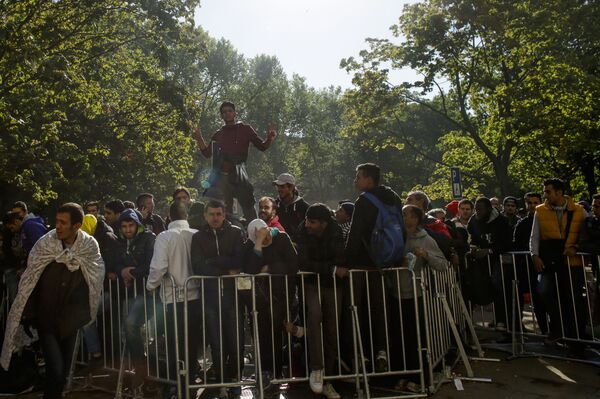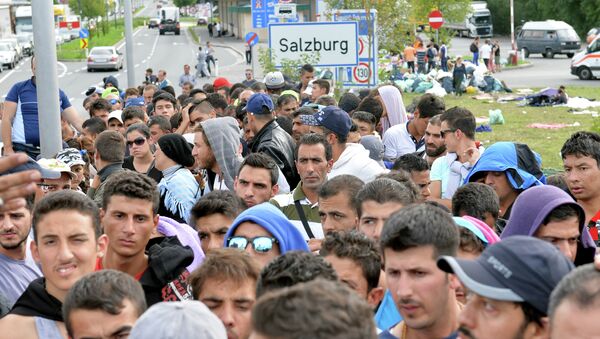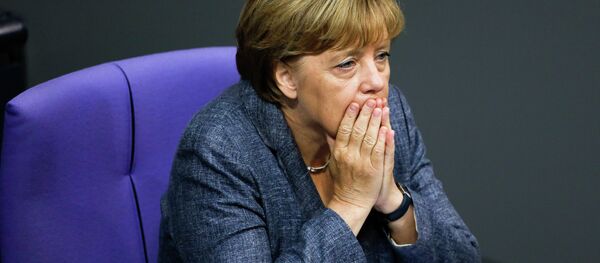Citing a secret government "internal prognosis", German newspaper Bild reported that as many as 1.5 million asylum seekers could arrive in Germany this year, scaled up from the previous estimate of between 800,000 and 1 million.

The newspaper quoted authorities saying they were concerned about the risk of a "breakdown of provisions", noting that many regions were already struggling to provide adequate supplies for new arrivals.
"Migratory pressures will increase further."
"We now expect seven to ten thousand illegal border crossings every day in the fourth quarter," Bild cited the report as saying.
"This high number of asylum seekers runs the risk of becoming an extreme burden for the states and municipalities."
The report also raised concerns about an ongoing influx of people coming to Germany, with concerns many of those who already have asylum in the country will encourage family members from the Middle East to join them in Europe.
Refugee Crisis Leading to Backlash Against Merkel
Following the failure of EU member states to agree on a refugee quota system, German Chancellor Angela Merkel has come under fire for her decision to temporarily ignore EU immigration laws and grant asylum to people fleeing Syria's civil war.
While Merkel was praised by aid agencies for the humanitarian gesture, others criticized the actions of the chancellor, arguing that accepting such large numbers of refugees has placed the country under immense strain, while other states have contributed very little.
This comes as about 2,500 right-wing activists in Germany staged anti-immigration demonstrations in the town of Sebnitz on the German-Czech border over the weekend, forming what they called a "living border" against Middle Eastern refugees entering the country.
Despite seeing her approval ratings slump to a four-year low on the back of the refugee crisis, Merkel dismissed claims that Germany was under immense pressure, saying the country would cope with the number of new arrivals.
200,000 refugees in #Germany in September alone. Merkel's popularity 4-yr low. http://t.co/xJkNpghJgb pic.twitter.com/vQq0hgrk3H
— Anne Bayefsky (@AnneBayefsky) October 4, 2015
However, perhaps as part of a sign of tension among the German government, Merkel's comments were somewhat contradicted by Finance Minister Wolfgang Schaeuble, who told broadcaster ZDF that individual nations couldn't handle the crisis on their own, and that a Europe-wide solution was needed.
"We need to limit the influx to Europe," he said.
"We can't manage this task at a national level anymore."
Critics have slammed the EU's inability to come to a general consensus over the refugee crisis, with concerns that member states Greece, Hungary, Italy and now Germany are struggling to deal with the influx of people from the Middle East and Africa.





